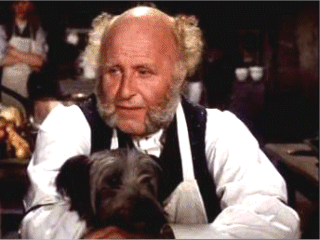After Wuthering Heights about three years ago,
this year I finally got a chance to read another Brontë’s. Charlotte’s Jane
Eyre was definitely more enjoyable than Emily’s WH, but I think WH was more
intriguing than JE. From the books, we could recognize the different
personalities of both sisters; Emily is more passionate, while Charlotte is
much reserved. As Jane Eyre has been
taken as Charlotte’s autobiographical novel, we can assume Jane’s voice is
Charlotte’s own voice.
Jane Eyre is
an orphan who is adopted by her uncle, Mr. Reed. After he died, Mrs. Reed
dislikes her, and with her children, treats Jane with hostility of being so
sensible for a child her age. Jane is quite relieved when she goes to a charity
school of Lowood Institute. But there she is also tortured by the poor
accommodation. She endures it however, and even becomes a teacher for several
years, before finally leaves it forever when she gets a job as governess in
Thorfield hall.
Thornfield
Hall belongs to an eccentric landlord, Mr. Rochester—Jane’s pupil is his ward. Mr.
Rochester lived alone in his big house with the housekeeper, Mrs. Fairfax, and
his ward, Adele. Even if you haven’t read this book, you would guess that soon
the master and the governess would fall in love to each other. When there is a
love story, there must be an obstacle to their relationship. Firstly, their age
difference and their social status; but love is more sensible than social laws.
But then, it
is revealed that Mr. Rochester is actually still married to his lunatic wife,
whom he has secretly been hiding on the house’ attic. This fact gives the
couple an immense blow. Mr. Rochester might think that he is eligible to marry
another woman, as his present wife is practically lifeless. But to a sensible
girl like Jane Eyre, who is a reverend’s daughter and has been educated in
strict Christian morality, to become a married man’s mistress is not possible.
So she runs away from Thornfield Hall, from happiness, and from her dear Mr.
Rochester, to avoid degradation and humiliation. Is that the end of the story?
Of course not, Charlotte then takes us to follow Jane’s new life. Whether she
will or will not meet Mr. Rochester again, is a question you must keep in your
mind while reading on this book to the end. I won’t give you any spoiler, if
you have not read it. :)
To me, Jane Eyre is rather dull, especially
when Mr. Rochester was absent, or have not yet appeared (in the first part). It
is perhaps typical of Victorian women’s character of narration: emotionless and
submissive. Or maybe it’s Charlotte’s own personality which was reflected to
this story. Either way, I remembered that I have almost thought to put this
book down, when Mr. Rochester appeared. Then, this book was not so colorless as
before. He is so vigorous and full of energy, that the pace of second part
suddenly felt much faster than before. Jane Eyre too, seems to become more
alive everytime she converse with Rochester. Their dialogues are always witty,
and are actually the best part of the book!
In Jane Eyre,
I sensed the struggle of balancing the freedom (for happiness) and the
principle (of conscience). In marriage, unlike most Victorian women, Jane seeks
love, because marriage without love can’t guarantee her happiness. That’s why
she refused St. John Rivers’ proposal, despite of the honor and security he can
provide. If Jane could not marry Rochester, and won’t marry other men whom she
doesn’t love, what would she get? Yes, she is now a quite rich woman, but I
think not that rich that she can support her entire life without having to
work. For a woman in that era, I believe this is a difficult choice. But Jane
takes it confidently. Maybe this is what the readers see as early feminism: the
courage to be herself; to follow her own principle, and not to bow down to the
customs.
[spoiler
alert] Actually, the feminism theory could be justified if the story ends up
there. However, when Charlotte made Rochester fell completely (physically as
well as mentally), to open a way of bringing a happy ending to this love story,
then I began questioning whether Charlotte saw feminism as woman overpowering
man. Is that what she really thought? Of course we would never know, and we
would be wondering over and over again, what this novel is really about. Maybe….this
is, after all, just about the power of love and a struggle of a woman….
Three and a
half stars for Jane Eyre.
~~~~~~~~~~~
I read Penguin Red Classics paperback edition
This book is counted
as:



































